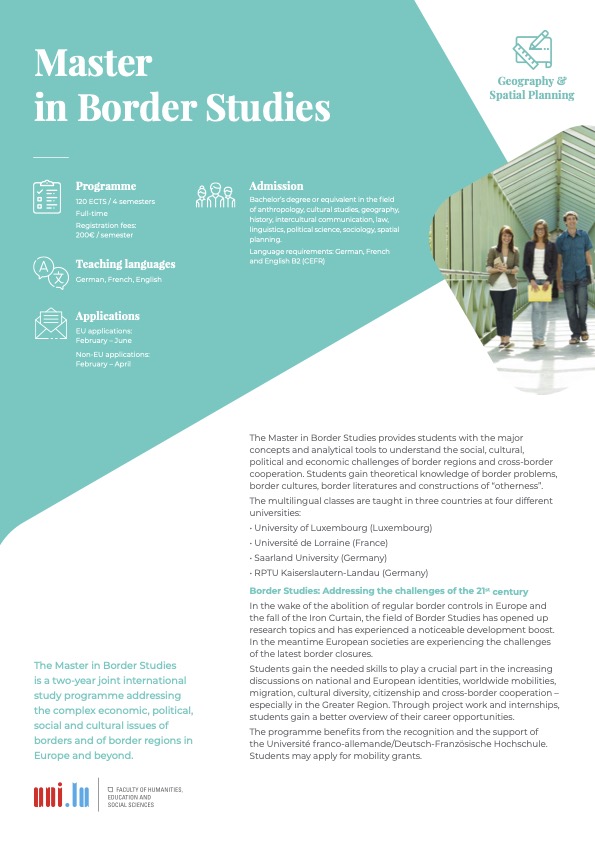Study and career opportunities
The Master in Border Studies prepares for employment opportunities in cross-border and inter-cultural working settings: cultural agencies or institutions, media relations, public administrations, cross-border cultural management and regional marketing. Students can also continue their studies at PhD level.
More info
Study programme flyer

Learning outcomes
At the end of the programme, the students will be able to:
- critically analyse and theorize border regions, as well as to consider borders as complex spatial, political, economic, social and cultural processes (re-/de-bordering),
- understand and comment on the social, cultural, political and economic challenges of border regions, and cross-border cooperations,
- recognize the interdependences built between (trans)regional and (trans)national, local and global, individual and collective patterns of migration, of mobility, of identity and of memories in the context of region and nation,
- understand intercultural and transcultural phenomena as well as analyse cultural identities and their aesthetic representation in border regions,
- question the potentials and risks of transnationalisation processes in modern societies and to develop future approaches,
- compare different border regions, identify problem areas of border regions and mobilise border (region) knowledge and competences,
- design and develop interdisciplinary research,
- handle digital media and different forms of blended learning.
